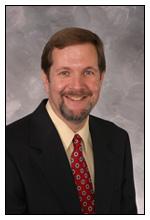After 10 years of spearheading the School of Law’s masters program in dispute resolution, professor John Lande is stepping down as director.
The LL.M. Program, which began in 1999, was the first in the U.S. to deal specifically with dispute resolution. Lande took over as director in 2000, and under his leadership, the program rose to international prominence. At least half of current LL.M students come from foreign countries, Lande said.
Lande said international students are drawn to MU for two reasons: an interest in dispute resolution and a desire to earn a degree in the U.S.
“The United States is really the leader in this field of alternative dispute resolution, a broader way of looking at disputes in addition to or beyond the court system,” Lande said.
He also attributes the success of the program to its intimate classroom settings. MU’s LL.M. Program, unlike most programs of its kind, places its students together in special class sections, rather than in larger classes with students from other programs. The average class size in the LL.M. Program is 15 students.
Commercial real estate attorney Christopher Thompson is halfway through the program and said he is pleased with his progress. Thompson received his law degree at MU and said he joined the program because it is so highly regarded in the field of dispute resolution.
Thompson said the transition in leadership is evidence of the success and longevity of the program.
“I think when you’ve had somebody in the program as long as (Lande has) been and then there is a transition, that simply tells you that the program stands alone,” he said. “It has been nurtured by Professor Lande, but it also stands alone as an entity with its own legs.”
Lande, who will continue to teach LL.M. courses this school year as well as a new class titled Family Law Dispute Resolution, spoke highly of his replacement, professor Paul Ladehoff.
“He has a lot of experience in teaching and training and practicing,” Lande said. “He is a very thoughtful, responsible guy.”
Ladehoff, who currently runs the campus mediation service, will formally replace Lande as director Sep. 1. Ladehoff said he is looking forward to working with students in this setting.
“I’ve been teaching a class for the Truman school, ‘Group Dynamics in Conflict Resolution,’ that some of our LL.M. students take as an elective, and I’ve always enjoyed working with them,” Ladehoff said.
As far as changes to the program, Ladehoff said there are no particular plans in store, but he is reviewing the program to see if improvements can be made.
“We’re going to take this as sort of a natural opportunity to take stock and think about are there any additional changes or additional opportunities that we want to make to make the program even better,” Ladehoff said.
Future changes might be made to better accommodate students enrolled domestically, most of whom are lawyers looking to change or improve their practice and want to enroll in the program on a part-time basis.
Several partnerships are also in the works internationally, including the University of the Western Cape in South Africa, where the law school currently has a study abroad program. At least one student from UWC enters the LL.M. Program each year.
A similar relationship is forming with Huazhong University of Science and Technology in Wuhan, China. Ladehoff said the LL.M. Program is also talking to schools in India, Thailand, France and South Korea.
These recruitment efforts come at a time when law school enrollment nationwide has decreased by 10 percent, according to [The Associated Press](http://www.stamfordadvocate.com/news/article/Law-school-enrollment-lags-as-legal-jobs-dry-up-1451181.php). The AP reports that MU’s law school saw 17 percent fewer applications this year.








